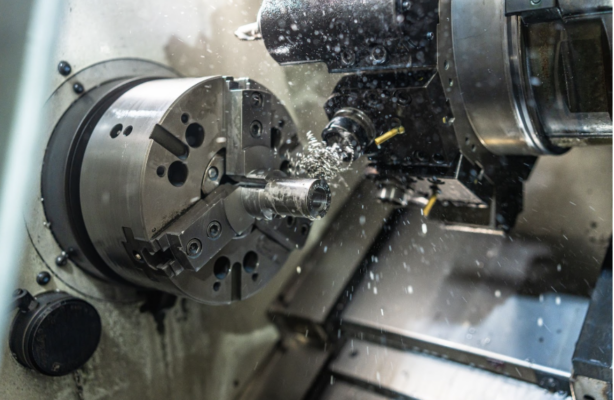In the oil and gas industry, drilling success depends heavily on the equipment used—especially the drill bit. The right bit not only enhances penetration rates but also reduces wear on equipment and overall costs. At KSW Oilfield Rentals, we understand that selecting and maintaining the right bit can make all the difference in field performance. In this guide, we’ll break down the different types of oil drill bits, how they’re used, tips for maintenance, and how KSW supports your drilling operations with high-quality equipment and service.
Types of Oil Drill Bits and Their Applications
Understanding the characteristics and ideal applications for each type of drill bit is essential when planning drilling operations.
1. Roller Cone Bits
Also known as tri-cone bits, roller cone bits have three rotating cones outfitted with steel teeth or tungsten carbide inserts. They work by crushing and chipping rock as they rotate.
Applications:
- Best for soft to medium-hard formations
- Common in exploratory and vertical drilling
Maintenance Tips:
- Inspect cones and teeth for wear
- Ensure proper lubrication to prevent overheating and bearing failure
- Replace worn cones to avoid inefficient drilling
Roller cone bits remain a staple in the industry thanks to their adaptability—especially when paired with KSW’s drilling support equipment designed for various geologic conditions.
2. Fixed Cutter Bits (PDC Bits)
Polycrystalline Diamond Compact (PDC) bits are fixed cutter bits with no moving parts. Instead of crushing, they shear rock with diamond-tipped blades, making them highly effective in certain formations.
Applications:
- Ideal for hard and abrasive formations
- Widely used in directional and horizontal drilling
Maintenance Tips:
- Check cutters frequently for chipping or flat wear
- Clean bits after each use to prevent buildup
- Replace damaged cutters to maintain efficiency
KSW offers high-performance bits designed for maximum durability and effectiveness in tough formations—perfect for operators focused on speed and cost-efficiency.
3. Diamond Bits
Diamond bits use industrial-grade diamonds bonded to the cutting surface. These bits are known for their exceptional durability and are ideal in extreme drilling conditions.
Applications:
- Suited for very hard formations, such as granite or quartzite
- Common in deep well and high-temperature applications
Maintenance Tips:
- Monitor diamond wear with regular inspections
- Avoid thermal damage by keeping the bit clean and cool
- Replace the bit at early signs of degradation to avoid costly downtime
When using premium diamond bits, equipment compatibility and fluid management are critical. KSW’s comprehensive fluid and solids control services help protect bits and improve overall drilling performance.
Choosing the Right Drill Bit: Factors to Consider
Whether drilling shallow exploratory wells or deep production wells, choosing the right bit involves balancing multiple variables:
- Formation Type: Soft shales require roller cone bits, while dense formations favor fixed cutter or diamond bits.
- Drilling Depth: Deeper wells demand bits that can handle high heat and pressure—PDC or diamond bits often excel here.
- Drilling Objectives: If speed and cost reduction are priorities, fixed cutter bits are typically more efficient than roller cones.
At KSW, we help our clients choose the right tools based on the formation and project goals. Our equipment rental solutions include expert recommendations for pairing the best bit with your rig and drilling strategy.
Maintenance Tips to Maximize Drill Bit Performance
Routine care not only extends the life of your bits but also protects your overall drilling operation from costly delays and damage.
1. Regular Inspections
- Look for broken teeth, chipped cutters, and structural fractures
- Track usage data and rotating hours to anticipate service intervals
2. Proper Lubrication
- Roller cone bits require precise lubrication to prevent bearing failure
- Always follow manufacturer recommendations for lubricant type and schedule
3. Cleaning After Use
- Remove debris, drilling mud, and cuttings after each run
- Store bits in clean, dry environments to avoid corrosion
4. Timely Replacements
- Worn bits can slow down operations, increase fuel usage, and stress other equipment
- Replacing bits proactively is more cost-effective than dealing with operational failures
How KSW Supports Your Drilling Operations
At KSW Oilfield Rentals, we do more than supply equipment—we partner with you for success in the field. From drill bit compatibility support to solids control systems that keep your fluids clean and equipment protected, our services are built to reduce downtime and improve efficiency.
Whether you need rugged roller cone bits, precision diamond cutters, or expert advice on fluid systems, KSW has the experience and inventory to keep your operation running smoothly.
Choosing and maintaining the right drill bit is essential for achieving optimal drilling performance. With an understanding of bit types, applications, and maintenance best practices, you can reduce costs, improve efficiency, and extend equipment lifespan. At KSW Oilfield Rentals, we’re here to support your operations every step of the way with expert guidance and high-quality rental solutions.Looking for the right drill bit or support system? Contact us today to explore equipment options and maximize your drilling performance with KSW.



